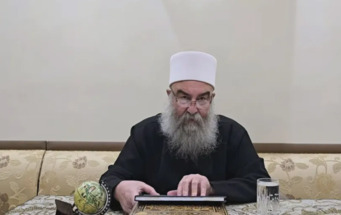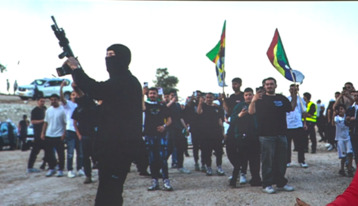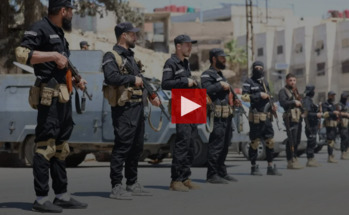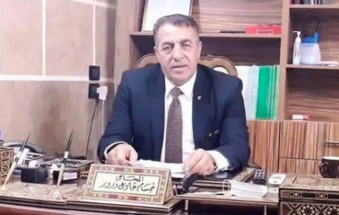-
Lebanon: Israeli warnings and possible return of residents

At a time when Israeli airstrikes continue in various areas of the southern suburbs of Beirut, and before a potential approval from the Israeli government for a ceasefire in Lebanon, an Israeli official confirmed that this agreement would ensure Israel's freedom of movement within Lebanese territory in the event of any violation.
David Mincer, the spokesperson for the Israeli government, clarified that "the agreement will maintain Israel's ability to defend itself against the threat of Hezbollah," according to his statement. He also indicated that "this agreement will allow northern residents to return to their homes safely," as reported by Reuters.
For his part, Israeli Defense Minister Israel Katz issued warnings and threats, emphasizing that Tel Aviv "will never tolerate any potential violation of the ceasefire." He noted that "any attempt to smuggle weapons to Hezbollah will be thwarted," reflecting his country's insistence on freedom of movement in southern Lebanon following the ratification of the agreement mediated by the United States.
In related remarks, Katz threatened, stating: "We will demolish any house used as a base for Hezbollah's operations or for storing its weapons," according to Agence France-Presse.
These warnings came after a series of violent airstrikes targeting four sites in the southern suburbs of Beirut, in addition to shelling several towns in the south and demolishing homes in the al-Qouzah area.
These events followed Joseph Borrell's, the European Union's foreign policy chief, confirmation that the proposed agreement includes all necessary security guarantees for Israel.
In a related context, Elias Bou Saab, the Deputy Speaker of the Lebanese Parliament, stated on Monday that "there are no longer any serious obstacles to the implementation of the agreement proposed by the United States to end the war, unless Israeli Prime Minister Benjamin Netanyahu changes his mind."
Bou Saab added that one of the points of contention was related to the monitoring mechanism for the ceasefire, but this was later resolved through the approval of a committee composed of five countries, including France, chaired by the United States. He explained that the proposal stipulates the withdrawal of Israeli forces from the south and the deployment of the Lebanese army along the border within 60 days.
Since last September, Israel has witnessed a significant escalation in its attacks on various Lebanese areas, particularly the southern suburbs, the south, and the Bekaa Valley, targeting hundreds of Hezbollah sites, while its forces have also infiltrated several border areas in the south, leading to clashes with party members.
Meanwhile, the United States, through its envoy Amos Hochstein, has sought for several months to calm the situation and establish a truce between the two parties.
You May Also Like
Popular Posts
Caricature
BENEFIT Sponsors BuildHer...
- April 23, 2025
BENEFIT, the Kingdom’s innovator and leading company in Fintech and electronic financial transactions service, has sponsored the BuildHer CityHack 2025 Hackathon, a two-day event spearheaded by the College of Engineering and Technology at the Royal University for Women (RUW).
Aimed at secondary school students, the event brought together a distinguished group of academic professionals and technology experts to mentor and inspire young participants.
More than 100 high school students from across the Kingdom of Bahrain took part in the hackathon, which featured an intensive programme of training workshops and hands-on sessions. These activities were tailored to enhance participants’ critical thinking, collaborative problem-solving, and team-building capabilities, while also encouraging the development of practical and sustainable solutions to contemporary challenges using modern technological tools.
BENEFIT’s Chief Executive Mr. Abdulwahed AlJanahi, commented: “Our support for this educational hackathon reflects our long-term strategic vision to nurture the talents of emerging national youth and empower the next generation of accomplished female leaders in technology. By fostering creativity and innovation, we aim to contribute meaningfully to Bahrain’s comprehensive development goals and align with the aspirations outlined in the Kingdom’s Vision 2030—an ambition in which BENEFIT plays a central role.”
Professor Riyadh Yousif Hamzah, President of the Royal University for Women, commented: “This initiative reflects our commitment to advancing women in STEM fields. We're cultivating a generation of creative, solution-driven female leaders who will drive national development. Our partnership with BENEFIT exemplifies the powerful synergy between academia and private sector in supporting educational innovation.”
Hanan Abdulla Hasan, Senior Manager, PR & Communication at BENEFIT, said: “We are honoured to collaborate with RUW in supporting this remarkable technology-focused event. It highlights our commitment to social responsibility, and our ongoing efforts to enhance the digital and innovation capabilities of young Bahraini women and foster their ability to harness technological tools in the service of a smarter, more sustainable future.”
For his part, Dr. Humam ElAgha, Acting Dean of the College of Engineering and Technology at the University, said: “BuildHer CityHack 2025 embodies our hands-on approach to education. By tackling real-world problems through creative thinking and sustainable solutions, we're preparing women to thrive in the knowledge economy – a cornerstone of the University's vision.”
opinion
Report
ads
Newsletter
Subscribe to our mailing list to get the new updates!






















